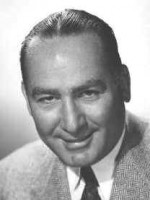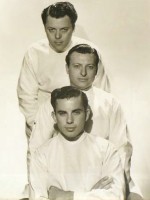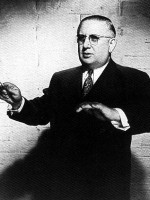Olivia de Havilland is a Actor and Scriptwriter British born on 1 july 1916 at Tokyo (Japon)
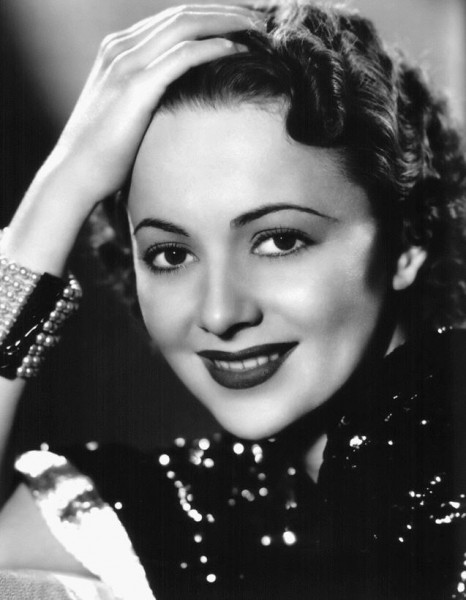
Olivia Mary de Havilland (born July 1, 1916) is a British-American actress known for her early ingenue roles, as well as her later more substantial roles. Born in Tokyo to English parents, de Havilland and her younger sister, actress Joan Fontaine, moved to California in 1919. She performed as Melanie Hamilton in Gone with the Wind (1939) and in eight co-starring roles opposite Errol Flynn, including Captain Blood (1935), The Adventures of Robin Hood (1938), Dodge City (1939), Santa Fe Trail (1940), and They Died with Their Boots On (1941). She is one of the last living actors/actresses from the Golden Age of Hollywood. At the age of 99, she is the oldest living actor who has won an Academy Award, and she is the last surviving major actor from the film Gone with the Wind.
De Havilland won the Academy Award for Best Actress for her performances in To Each His Own (1946) and The Heiress (1949); de Havilland and sister Fontaine are the only siblings to have won lead acting Academy Awards. She also received the National Board of Review Award, the New York Film Critics Circle Award, the Italian National Syndicate of Film Journalists Silver Ribbon, and the Venice Film Festival Volpi Cup for her performance in The Snake Pit (1948). She was awarded the Golden Globe Award for her performance in The Heiress in 1950 and for Anastasia: The Mystery of Anna in 1987. In 1960, she was honored with a star on the Hollywood Walk of Fame for her work in films. In 2008, she was presented with the National Medal of Arts by President George W. Bush.
Although known as one of Hollywood's most exciting on-screen couples—having appeared in eight films together—de Havilland and Errol Flynn were never linked romantically. The eight films in which they co-starred are Captain Blood (1935), The Charge of the Light Brigade (1936), The Adventures of Robin Hood and Four's a Crowd (1938), Dodge City and The Private Lives of Elizabeth and Essex (1939), Santa Fe Trail (1940) and They Died with Their Boots On (1941). Of her feelings for her co-star, de Havilland once observed: He never guessed I had a crush on him. And it didn't get better either. In fact, I read in something that he wrote that he was in love with me when we made The Charge of the Light Brigade the next year, in 1936. I was amazed to read that, for it never occurred to me that he was smitten with me, too, even though we did all those pictures together.
In another interview, however, de Havilland claimed she knew the crush was reciprocal and stated that Flynn proposed, though de Havilland turned down the proposal as Flynn was still married to actress Lili Damita at the time. From December 1939 to March 1942, she was romantically involved with single actor James Stewart. At the request of Irene Mayer Selznick, the actor's agent asked Stewart to escort de Havilland to the New York premiere of Gone with the Wind at the Astor Theater on December 19, 1939. Over the next few days, Stewart took her to the theater several times and to the 21 Club. They continued to see each other back in Los Angeles, where Stewart provided occasional flying lessons and romance. According to de Havilland, Stewart in fact proposed marriage to her in 1940, but she felt that he was not ready to settle down. Their relationship was interrupted by Stewart's military enlistment in March 1941, but would continue on and off until March 1942, when de Havilland fell in love with director John Huston.
The Mexican film director Emilio Fernandez was deeply in love with de Havilland, whom he never met. Fernandez asked the then president of Mexico Miguel Aleman to prolong a street in Coyoacán, in Mexico City to his mansion to then name it Sweet Olivia.
Marriages
Olivia de Havilland was married twice. On January 24, 1946, she married Marcus Goodrich, a Navy veteran, author, and screenwriter. They had one child, Benjamin Goodrich, who was born on December 1, 1949. The marriage ended in divorce in 1952. Their son Benjamin died on October 1, 1991 (aged 41) of Hodgkin's lymphoma, three weeks before the death of his father.
On April 2, 1955, de Havilland married Pierre Galante, a journalist and editor of Paris Match. They had one child, Gisèle Galante, who was born on July 18, 1956. Her marriage to Galante prompted de Havilland to move to Paris. She recounted her adjustments to Parisian life in her memoir, Every Frenchman Has One. The couple separated in 1962, but did not divorce until 1979.
Close friendships
De Havilland was lifelong best friends with Bette Davis with whom she starred in Hush… Hush, Sweet Charlotte (1964), The Private Lives of Elizabeth and Essex (1939), It's Love I'm After (1937), and In This Our Life (1942). She remained a close friend of actress Gloria Stuart until Stuart's death in 2010, at the age of 100. In April 2008, she attended the Los Angeles funeral of Charlton Heston. In 2008, she was a surprise guest at the centennial tribute to Bette Davis.
Sibling rivalry
Olivia de Havilland and her sister, Joan Fontaine, are the only siblings to have won lead acting Academy Awards. Of the two sisters, de Havilland was the first to become an actress. When Fontaine tried to follow her lead, their mother, who allegedly favoured de Havilland, refused to let her use the family name professionally. According to biographer Charles Higham, the sisters always had an uneasy relationship, starting in early childhood when de Havilland would rip up the clothes Fontaine had to wear as hand-me-downs, forcing Fontaine to sew them back together. A large part of the resentment between the sisters allegedly stemmed from Fontaine's belief that de Havilland was their mother's favorite child.
De Havilland and Fontaine were both nominated for an Academy Award for Best Actress in 1942. Fontaine won that year for her role in Alfred Hitchcock's Suspicion over de Havilland's performance in Hold Back the Dawn. According to Higham, as Fontaine stepped forward to receive her award, she pointedly rejected de Havilland's attempts at congratulating her, and that de Havilland was both offended and embarrassed by her behavior. Their relationship was further strained when Fontaine made negative comments to an interviewer about de Havilland's husband. Fontaine, however, tells a different story in her autobiography, explaining that she was paralyzed with surprise when she won the Academy Award, and that de Havilland insisted she get up to accept it. "Olivia took the situation very graciously," Fontaine wrote. "I was appalled that I'd won over my sister."
Several years later, when de Havilland stepped up to accept her Academy Award for Best Actress, she brushed past Fontaine, who was waiting with her hand extended. The relationship between the sisters continued to deteriorate, and may have caused the estrangement between Fontaine and her own daughters, who secretly maintained a relationship with de Havilland. For years, both sisters refused to comment publicly about their relationship.
Contrary to press reports, the sisters continued their relationship after the 1940s. After Fontaine's separation from her husband in 1952, de Havilland came to her apartment in New York often, and at least once spent Christmas together there, in 1961. They were photographed laughing together at a party for Marlene Dietrich in 1967. Joan also went to visit Olivia in Paris in 1969.
The final break between the sisters occurred in 1975. According to Fontaine, they stopped speaking because of a disagreement over their mother's cancer treatment. While de Havilland wanted their mother to be treated surgically, Fontaine opposed surgery due to their mother's advanced age. Fontaine also claimed that after their mother died, de Havilland did not make an effort to notify Fontaine, who was touring with a play at the time. Instead, de Havilland sent a telegram, which did not reach her sister until two weeks later at Fontaine's next engagement.
The sibling feud ended with Fontaine's death in December 2013. Determined to have the last word on the matter, Fontaine once noted, "I married first, won the Oscar before Olivia did, and if I die first, she'll undoubtedly be livid because I beat her to it!" Following her sister's death, de Havilland released a statement saying she was "shocked and saddened" by the news.
Source : Wikidata
Olivia de Havilland

Birth name Olivia Mary de Havilland
Nationality United-kingdom
Birth 1 july 1916 at Tokyo (Japon)
Death 26 july 2020 (at 104 years)
Awards Chevalier de la Légion d'Honneur, Academy Award for Best Actress, National Medal of Arts
Nationality United-kingdom
Birth 1 july 1916 at Tokyo (Japon)
Death 26 july 2020 (at 104 years)
Awards Chevalier de la Légion d'Honneur, Academy Award for Best Actress, National Medal of Arts
Olivia Mary de Havilland (born July 1, 1916) is a British-American actress known for her early ingenue roles, as well as her later more substantial roles. Born in Tokyo to English parents, de Havilland and her younger sister, actress Joan Fontaine, moved to California in 1919. She performed as Melanie Hamilton in Gone with the Wind (1939) and in eight co-starring roles opposite Errol Flynn, including Captain Blood (1935), The Adventures of Robin Hood (1938), Dodge City (1939), Santa Fe Trail (1940), and They Died with Their Boots On (1941). She is one of the last living actors/actresses from the Golden Age of Hollywood. At the age of 99, she is the oldest living actor who has won an Academy Award, and she is the last surviving major actor from the film Gone with the Wind.
De Havilland won the Academy Award for Best Actress for her performances in To Each His Own (1946) and The Heiress (1949); de Havilland and sister Fontaine are the only siblings to have won lead acting Academy Awards. She also received the National Board of Review Award, the New York Film Critics Circle Award, the Italian National Syndicate of Film Journalists Silver Ribbon, and the Venice Film Festival Volpi Cup for her performance in The Snake Pit (1948). She was awarded the Golden Globe Award for her performance in The Heiress in 1950 and for Anastasia: The Mystery of Anna in 1987. In 1960, she was honored with a star on the Hollywood Walk of Fame for her work in films. In 2008, she was presented with the National Medal of Arts by President George W. Bush.
Biography
RelationshipsAlthough known as one of Hollywood's most exciting on-screen couples—having appeared in eight films together—de Havilland and Errol Flynn were never linked romantically. The eight films in which they co-starred are Captain Blood (1935), The Charge of the Light Brigade (1936), The Adventures of Robin Hood and Four's a Crowd (1938), Dodge City and The Private Lives of Elizabeth and Essex (1939), Santa Fe Trail (1940) and They Died with Their Boots On (1941). Of her feelings for her co-star, de Havilland once observed: He never guessed I had a crush on him. And it didn't get better either. In fact, I read in something that he wrote that he was in love with me when we made The Charge of the Light Brigade the next year, in 1936. I was amazed to read that, for it never occurred to me that he was smitten with me, too, even though we did all those pictures together.
In another interview, however, de Havilland claimed she knew the crush was reciprocal and stated that Flynn proposed, though de Havilland turned down the proposal as Flynn was still married to actress Lili Damita at the time. From December 1939 to March 1942, she was romantically involved with single actor James Stewart. At the request of Irene Mayer Selznick, the actor's agent asked Stewart to escort de Havilland to the New York premiere of Gone with the Wind at the Astor Theater on December 19, 1939. Over the next few days, Stewart took her to the theater several times and to the 21 Club. They continued to see each other back in Los Angeles, where Stewart provided occasional flying lessons and romance. According to de Havilland, Stewart in fact proposed marriage to her in 1940, but she felt that he was not ready to settle down. Their relationship was interrupted by Stewart's military enlistment in March 1941, but would continue on and off until March 1942, when de Havilland fell in love with director John Huston.
The Mexican film director Emilio Fernandez was deeply in love with de Havilland, whom he never met. Fernandez asked the then president of Mexico Miguel Aleman to prolong a street in Coyoacán, in Mexico City to his mansion to then name it Sweet Olivia.
Marriages
Olivia de Havilland was married twice. On January 24, 1946, she married Marcus Goodrich, a Navy veteran, author, and screenwriter. They had one child, Benjamin Goodrich, who was born on December 1, 1949. The marriage ended in divorce in 1952. Their son Benjamin died on October 1, 1991 (aged 41) of Hodgkin's lymphoma, three weeks before the death of his father.
On April 2, 1955, de Havilland married Pierre Galante, a journalist and editor of Paris Match. They had one child, Gisèle Galante, who was born on July 18, 1956. Her marriage to Galante prompted de Havilland to move to Paris. She recounted her adjustments to Parisian life in her memoir, Every Frenchman Has One. The couple separated in 1962, but did not divorce until 1979.
Close friendships
De Havilland was lifelong best friends with Bette Davis with whom she starred in Hush… Hush, Sweet Charlotte (1964), The Private Lives of Elizabeth and Essex (1939), It's Love I'm After (1937), and In This Our Life (1942). She remained a close friend of actress Gloria Stuart until Stuart's death in 2010, at the age of 100. In April 2008, she attended the Los Angeles funeral of Charlton Heston. In 2008, she was a surprise guest at the centennial tribute to Bette Davis.
Sibling rivalry
Olivia de Havilland and her sister, Joan Fontaine, are the only siblings to have won lead acting Academy Awards. Of the two sisters, de Havilland was the first to become an actress. When Fontaine tried to follow her lead, their mother, who allegedly favoured de Havilland, refused to let her use the family name professionally. According to biographer Charles Higham, the sisters always had an uneasy relationship, starting in early childhood when de Havilland would rip up the clothes Fontaine had to wear as hand-me-downs, forcing Fontaine to sew them back together. A large part of the resentment between the sisters allegedly stemmed from Fontaine's belief that de Havilland was their mother's favorite child.
De Havilland and Fontaine were both nominated for an Academy Award for Best Actress in 1942. Fontaine won that year for her role in Alfred Hitchcock's Suspicion over de Havilland's performance in Hold Back the Dawn. According to Higham, as Fontaine stepped forward to receive her award, she pointedly rejected de Havilland's attempts at congratulating her, and that de Havilland was both offended and embarrassed by her behavior. Their relationship was further strained when Fontaine made negative comments to an interviewer about de Havilland's husband. Fontaine, however, tells a different story in her autobiography, explaining that she was paralyzed with surprise when she won the Academy Award, and that de Havilland insisted she get up to accept it. "Olivia took the situation very graciously," Fontaine wrote. "I was appalled that I'd won over my sister."
Several years later, when de Havilland stepped up to accept her Academy Award for Best Actress, she brushed past Fontaine, who was waiting with her hand extended. The relationship between the sisters continued to deteriorate, and may have caused the estrangement between Fontaine and her own daughters, who secretly maintained a relationship with de Havilland. For years, both sisters refused to comment publicly about their relationship.
Contrary to press reports, the sisters continued their relationship after the 1940s. After Fontaine's separation from her husband in 1952, de Havilland came to her apartment in New York often, and at least once spent Christmas together there, in 1961. They were photographed laughing together at a party for Marlene Dietrich in 1967. Joan also went to visit Olivia in Paris in 1969.
The final break between the sisters occurred in 1975. According to Fontaine, they stopped speaking because of a disagreement over their mother's cancer treatment. While de Havilland wanted their mother to be treated surgically, Fontaine opposed surgery due to their mother's advanced age. Fontaine also claimed that after their mother died, de Havilland did not make an effort to notify Fontaine, who was touring with a play at the time. Instead, de Havilland sent a telegram, which did not reach her sister until two weeks later at Fontaine's next engagement.
The sibling feud ended with Fontaine's death in December 2013. Determined to have the last word on the matter, Fontaine once noted, "I married first, won the Oscar before Olivia did, and if I die first, she'll undoubtedly be livid because I beat her to it!" Following her sister's death, de Havilland released a statement saying she was "shocked and saddened" by the news.
Best films
Usually with
Filmography of Olivia de Havilland (59 films)
Actress
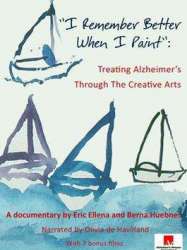 , 54minutes
, 54minutesOrigin USA
Genres Documentary
Themes Medical-themed films, Documentaire sur une personnalité, Documentary films about health care, Films about psychiatry, Films about disabilities
Actors Olivia de Havilland
Rating67%





The film is by Eric Ellena and Berna Huebner, and is narrated by actress Olivia de Havilland. It features an interview with Yasmin Aga Khan, president of Alzheimer Disease International and daughter of Rita Hayworth, who had Alzheimer's, describing how her mother took up painting while struggling with the disease. The inspiration for the film is the story of Hilda Goldblatt Gorenstein (Hilgos), who had Alzheimer's. As she painted, Hilgos’s mobility and speech began to improve as did her quality of life.
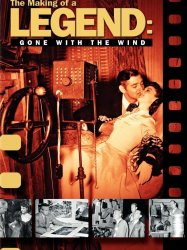 , 2h4
, 2h4Origin USA
Genres Documentary
Themes Films about films, Documentary films about business, Documentary films about the film industry, Documentary films about films
Actors Christopher Plummer, George Cukor, Arthur E. Arling, Tallulah Bankhead, Susan Hayward, Margaret Tallichet
Roles Self - Cast Member in 'Gone with the Wind' (archive footage)
Rating84%





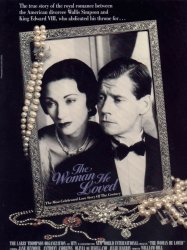
The Woman He Loved (1988)
, 1h40Directed by Charles Jarrott
Origin USA
Genres Drama, Biography, Romance
Actors Anthony Andrews, Jane Seymour, Olivia de Havilland, Tom Wilkinson, Lucy Gutteridge, Robert Hardy
Roles Aunt Bessie Merryman
Rating61%





28 mai 1972, le duc de Windsor, ex-roi Édouard VII, décède d'un cancer de la gorge un mois avant ses 78 ans dans sa résidence du Bois de Boulogne à Paris. Seule, ayant perdu son mari et son titre de duchesse, sa femme Wallis qui commence à être gagnée par la sénilité à 76 ans, se souvient des 35 années passées avec nostalgie et regret.
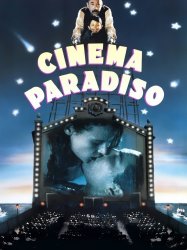
Cinema Paradiso (1988)
, 1h58Directed by Giuseppe Tornatore
Origin Italie
Genres Drama, Romance
Themes L'adolescence, Films about films, Films about children, Medical-themed films, Seafaring films, Transport films, Films about disabilities, La cécité
Actors Philippe Noiret, Salvatore Cascio, Marco Leonardi, Jacques Perrin, Brigitte Fossey, Antonella Attili
Roles Maid Marian (archive footage) (uncredited)
Rating84%





In Rome, in the 1980s, famous Italian film director Salvatore Di Vita returns home late one evening, where his girlfriend sleepily tells him that his mother called to say someone named Alfredo has died. Salvatore obviously shies from committed relationships and has not been to his home village of Giancaldo, Sicily in 30 years. As his girlfriend asks him who Alfredo is, Salvatore flashes back to his childhood.
 , 3h15
, 3h15Directed by Marvin J. Chomsky
Origin USA
Genres Drama, Thriller, Historical
Themes Medical-themed films, Films about psychiatry, Films about disabilities
Actors Amy Irving, Olivia de Havilland, Rex Harrison, Jan Niklas, Omar Sharif, Angela Pleasence
Roles Dowager Empress Maria
Rating65%





The film starts in December, 1916, just before the Russian Revolution, then moves to 1917's February Revolution, the family's forced move to Siberia in summer, 1917 after Nicholas II's forced abdication in March, the late-1917 Bolshevik takeover and start of the Russian Civil War and the July, 1918 mass shooting of the family. Afterwards, it revolves around Anna Anderson, who believes that she is Anastasia Romanov, daughter of Nicholas II of Russia. Anna first tells her story in the 1920s when she is an inmate in a Berlin asylum after her suicide attempt. Her story of escape from the Bolsheviks who killed the rest of her family in 1918 seems so vivid that many Russian expatriates are willing to believe her. She slowly gains more trust, but the Romanov family is very resistant to believe her tale and publicly denounces her as an impostor. The movie culminates in 1938 with Anna deciding to sue the Romanovs in Germany's courts to force them to recognize her as Anastasia, but it never reveals if Anna really is Anastasia. The ending epilogue narration says that she eventually moved back to the U.S. and settled in Charlottesville, Virginia where she died in 1984.
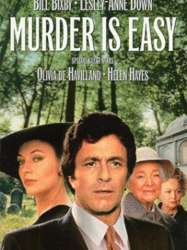
Murder Is Easy (1982)
, 1h30Directed by Claude Whatham
Origin USA
Genres Thriller, Crime
Actors Bill Bixby, Lesley-Anne Down, Helen Hayes, Olivia de Havilland, Timothy West, Patrick Allen
Roles Honoria Waynflete
Rating60%





Adaptation du roman d'Agatha Christie, Un meutre est-il facile?

The Fifth Musketeer (1979)
, 1h56Directed by Ken Annakin
Origin Austria
Genres Swashbuckler, Action, Adventure, Historical
Themes Films about families, Politique, Political films, Films about royalty
Actors Sylvia Kristel, Ursula Andress, Beau Bridges, Cornel Wilde, Ian McShane, Alan Hale Jr.
Roles Anne d'Autriche
Rating53%





Le roi Louis XIV a à son insu un frère jumeau, Philippe, mais quand il est dit, il verrouille immédiatement son frère à la Bastille. Le roi veut augmenter sa popularité et met en scène un assassinat contre lui-même où Philippe est habillé comme roi Louis. Mais Philippe parvient à échapper à l'assassinat et tout le monde le croit le vrai roi ...
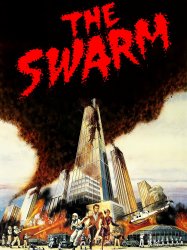
The Swarm (1978)
, 1h56Directed by Irwin Allen
Origin USA
Genres Drama, Science fiction, Thriller, Action, Horror
Themes Films about animals, La fin du monde, Natural horror films, Films about insects, Disaster films, American disaster films, Film de catastrophe animalière
Actors Michael Caine, Katharine Ross, Richard Widmark, Richard Chamberlain, Olivia de Havilland, Ben Johnson
Roles Maureen Schuester
Rating45%





A group of soldiers led by Maj. Baker (Bradford Dillman) is ordered to investigate a basement level station which they believed was attacked. After Baker contacts his commander, Gen. Slater (Richard Widmark), they begin to investigate who drove a civilian van into the base. It is revealed to be owned by a scientist named Dr. Bradford Crane (Michael Caine), the only survivor of the attack. Slater orders two helicopters to check for a black mass (revealed to be bees), but the two helicopters are swarmed by the bees and crash, killing the pilots inside. Crane insists to Slater that the base was attacked by the same African killer bees that destroyed the helicopters. Helena Anderson (Katharine Ross), one of the base's doctors, supports Crane's story.

Airport '77 (1977)
, 1h54Directed by Jerry Jameson
Origin USA
Genres Drama, Thriller, Disaster, Action, Adventure
Themes La fin du monde, Seafaring films, Films about terrorism, Transport films, Aviation films, Dans un avion, Disaster films, American disaster films, Films about aviation accidents or incidents, Films about hijackings
Actors Jack Lemmon, Lee Grant, James Stewart, Olivia de Havilland, Joseph Cotten, Brenda Vaccaro
Roles Emily Livingston
Rating57%





A privately owned luxury Boeing 747-100, Stevens' Flight 23, flies invited guests to an estate in Palm Beach, Florida, owned by wealthy philanthropist Philip Stevens, who also owns the jetliner. Valuable artwork from Stevens's private collection is also on board the jetliner, to be eventually displayed in his new museum. Such a collection motivates a group of thieves led by co-pilot Bob Chambers to hijack the aircraft.
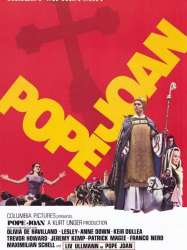
Pope Joan (1972)
, 2h12Directed by Michael Anderson, Herbert Wise
Origin United-kingdom
Genres Drama, Historical
Themes Seafaring films, Films about religion, Films about sexuality, Transport films, LGBT-related films, Transgender in film, Films set in the Viking Age, LGBT-related films, LGBT-related film, Cross-dressing in film
Actors Liv Ullmann, Olivia de Havilland, Franco Nero, Lesley-Anne Down, Patrick Magee, Nigel Havers
Roles Mother Superior
Rating55%





Nous sommes dans l’Empire franc au IXème siècle, Jeanne voyage de pays en pays avec sa mère et son père, un prédicateur itinérant anglais qui prêche toujours là où l’occasion se présente. Jeanne, à qui son père a appris très tôt à lire et à écrire est capable de lire dans les textes bibliques et aide son père dans les sermons. Quand elle lit des textes de la Bible, ceux qui l’écoutent sont stupéfaits, n’arrivant pas à croire qu’une fille si jeune en soit capable.
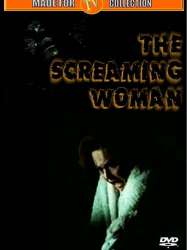
The Screaming Woman (1972)
, 1h13Directed by Jack Smight
Origin USA
Genres Drama, Thriller, Horror
Actors Olivia de Havilland, Ed Nelson, Joseph Cotten, Walter Pidgeon, Charles Robinson, Charles Knox Robinson III
Roles Laura Wynant
Rating65%





De Havilland plays Laura Wynant, a wealthy former mental patient who has travelled to her country estate to recuperate. While there, she discovers that a woman has been buried alive on her property. Wynant tries to inform others of what she has found but nobody believes her, and her family begins to suspect a relapse in her mental condition. Because her hands are nearly crippled by arthritis, she is not able to dig the woman up herself. She tries to trick a local boy into assisting her by telling him she is digging for a lost bracelet but is forced to tell him the truth, resulting in a confrontation with his angry father. While going door-to-door to seek help, she encounters the buried woman's husband, who had in fact buried her after striking her on the head with a shovel and thinking her dead. Wynant is confined to home under doctor's orders and, in a fit of anger, experiences a spontaneous recovery from the arthritis in her hands. She begins to dig up the buried woman, who is still alive, but the murderous husband finds her. The authorities arrive in time and Wynant and the buried woman are rescued.
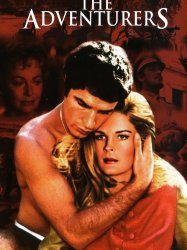
The Adventurers (1970)
, 2h51Directed by Lewis Gilbert, Ernest Day
Origin USA
Genres Drama, Action, Adventure
Themes Monde imaginaire
Actors Bekim Fehmiu, Candice Bergen, Charles Aznavour, Olivia de Havilland, Fernando Rey, Thommy Berggren
Roles Deborah Hadley
Rating53%





Set in South America, it tells the tale of a rich playboy, Dax (Diogenes Alejandro Xenos) (Bekim Fehmiu) who uses and destroys everyone who crosses his path. His vileness results from having seen his mother and sister raped and murdered by Government troops. But his obsession is to avenge his father's murder. And yet, the father of Dax had been a true patriot unlike any of the other self-seeking Presidentes in an otherwise poor country always belonging to "the revolution." After Dax is himself shot and dies below a statue erected to exploit the memory of his father, does he finally realize he loved his country but had failed both his country and to be the man his father was.
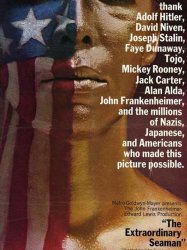
The Extraordinary Seaman (1969)
, 1h20Directed by John Frankenheimer
Origin USA
Genres War, Fantastic, Comedy, Adventure
Themes Military humor in film, Seafaring films, Transport films, Political films
Actors David Niven, Faye Dunaway, Alan Alda, Juano Hernández, Mickey Rooney, Jack Carter
Rating34%





A ghostly British naval officer(Niven) persuades four members of the American navy to launch an attack on Japanese positions, hoping to redeem the family honor and his own tattered record from the First World War. He had been condemned to sail the seas forever after falling down drunk before his first battle in the Great War. With his typical luck he actually succeeds in sinking a Japanese naval vessel -- *after* it had officially surrendered to the US Navy. As a result, he is seen again consigned to sailing his ship forever, this time in a children's amusement park lake, to await another chance at redemption.
 , 2h13
, 2h13Directed by Robert Aldrich
Origin USA
Genres Drama, Thriller, Horror, Crime
Themes Children's films
Actors Bette Davis, Olivia de Havilland, Joseph Cotten, Agnes Moorehead, Cecil Kellaway, Mary Astor
Roles Miriam Deering
Rating74%





In 1927, young belle Charlotte Hollis (Bette Davis) and her married lover, John Mayhew (Bruce Dern), plan to elope during a party at the Hollis family's antebellum mansion in Ascension Parish, Louisiana. However, after Charlotte's father intimidates him, telling him that John's wife had visited the day before and revealed the affair, John pretends he no longer loves Charlotte and tells her they must part.
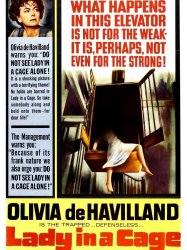
Lady in a Cage (1964)
, 1h34Directed by Walter Grauman
Origin USA
Genres Drama, Thriller, Horror
Actors Olivia de Havilland, James Caan, Ann Sothern, Jennifer Billingsley, Scatman Crothers, Jeff Corey
Roles Mrs. Cornelia Hilyard
Rating66%





When an electrical power failure occurs, Mrs. Hilyard (Olivia de Havilland), a wealthy widow recuperating from a broken hip, becomes trapped between floors in the cage-like elevator she has installed in her mansion. With her son Malcolm (William Swan) away for a summer weekend, she relies on the elevator's emergency alarm to attract attention, but the only response comes from an alcoholic derelict, George (Jeff Corey), who enters the home, ignores her pleas and steals some small items. The wino sells them to a fence, then visits his prostitute friend, Sade (Ann Sothern), and tells her of the treasure trove he has stumbled upon. The expensive goods George fenced attracts the attention of three young hoodlums, Randall (James Caan), Elaine (Jennifer Billingsley) and Essie (Rafael Campos). The trio follows George and Sade back to the Hilyard home, where they conduct an orgy of violence, killing George the wino and locking Sade in a closet. Randall then pulls himself up to the elevator and taunts Mrs. Hilyard with a note left behind by her son Malcolm, in which he threatens suicide because of her domineering manner. Shocked by the revelation, Mrs. Hilyard struggles with Randall, escapes the elevator, and crawls out of the house. Randall follows and, as he is attempting to drag her back inside, Mrs. Hilyard gouges his eyes, but is dragged inside by his accomplices. As she crawls back outside, the blinded assailant stumbles into the street and is run over by a passing automobile, whereupon police arrive to arrest the surviving intruders and comfort the victim.
 Connection
Connection






